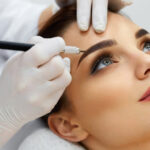The Ordinary, La Roche-Posay and Cerave Lead the Charts
The Ordinary maintains its top position with an upheld perception of quality and value for money, alongside a commendable reputation for its sustainable practices as seen by consumers,and L’Oréal’s La Roche-Posay and Cerave elevate to second and third place, respectively, with robust advertising strategies enhancing their digital scores.
We assess brand performances against a comprehensive range of data points encompassing consumer sentiment, digital presence, ESG initiatives, and innovation.
Certification and reporting practices have been introduced to the ESG audit to enable monitoring of progress and policies in this installment.
Meanwhile, a brand questionnaire on labor rights allows insights into non-public progress trends.
The evaluation categories and metrics are determined based on industry relevance and consumer importance to objectively evaluate brand performances.
The final weight assigned to each category is determined after review by our data analysts and expert editors.
A total of thirty brands are assessed, including both established leaders and emerging disruptors, enabling insights from global brands and rapidly growing newcomers.
In this edition, Clarins, Clinique, and Rhode enter at ninth, 11th, and 29th position, respectively.
Consumer research remains core to the evaluation with readers from various Condé Nast publications participating in an annual beauty consumer sentiment survey, ensuring a granular understanding of awareness, customer challenges, and beliefs about brands.
Future versions of the evaluation will aim to expand the brands, metrics, and digital platforms assessed, specially on La Roche-Posay and Cerave with new additions prioritized according to industry needs and advancements.
1. The Ordinary
The Estée Lauder Companies
Rank Change: None

The Ordinary, a previous winner, maintains its top spot, despite strong competition from rising L’Oréal brands.
The brand retains a strong presence in consumer and ESG aspects and is highly rated for quality, innovation, likelihood to recommend, and purchase intent.
The brand’s commitment to environmental policies also reflects in consumer perceptions of its sustainability efforts.
2. La Roche-Posay
L’Oréal Group
Rank Change: +4

L’Oréal’s La Roche-Posay moves up several positions in this year’s assessment, rising from outside the top five in 2023 to second place.
Driven by significant gains in consumer perception and digital performance, virtual skin consultations during Black Friday have contributed to its progress.
Additionally, a YouTube campaign for the US Open has emerged as the most popular content during the review period.
3. Cerave
L’Oréal Group
Rank Change: +5

Cerave’s effective marketing strategies have led to increased consumer awareness and appreciation.
The popular US skincare brand thrives on science-driven product development, enabling it to transition smoothly from competitive to premium pricing.
Cerave’s influencer strategy and a successful Super Bowl campaign solidify its position as a digital leader.
4. Charlotte Tilbury
Puig
Rank Change: -2

Charlotte Tilbury slips to the fourth position this year from second place in 2023.
Despite this, its digital performance continues to impress, surprising the industry with a Formula One sponsorship and its unique virtual presence.
Notably, it is the only brand to offer product refills that incentivize shoppers through discounts in the ESG domain.
5. Kiehl’s
L’Oréal Group
Rank Change: -2

Kiehl’s has played a significant role in pioneering personalized wellness initiatives.
While being the only brand providing personalized formulations previously, the Apothecary skincare service is no longer active, highlighting challenges faced by brands in scaling such solutions.
Nonetheless, the brand retains its position by offering products that cater to individual consumer needs.







